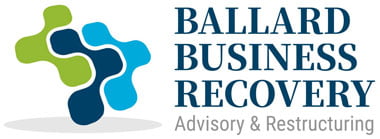Supply chain disruptions have been commonplace in recent years. The COVID-19 pandemic kickstarted a range of challenges across the global supply chain, and these disruptions have only been amplified by the ongoing conflict in Ukraine. More recently, US President Donald Trump imposed a 25% tariff on UK steel and aluminium imports, with subsequent action from the UK government a genuine possibility in return.
Such ongoing developments prove that, unfortunately, supply chain disruption will not go away any time soon. If you run a business, you are entirely justified in being concerned about how problems within the supply chain may affect you. However, the most important thing you can do is prioritise the need to boost your resilience against potential supply chain disruptions both now and in the future. We have outlined the key ways you can do this in this article.
Learn How To Spot Supply Chain Disruption
The most valuable thing you can do to protect your business from supply chain disruption is to act early and proactively. Identifying early signs of issues amongst your suppliers is crucial for mitigating their impact. If you can catch supply chain disruptions early, you can adapt and adjust your strategy accordingly before said disruption can impact your business activity directly.
Some of the clearest indicators of poor financial health amongst your supply chain may include delivery delays, sudden price increases for raw materials, poor or slow communication and last-minute requests for new payment terms. Take the time to reflect on whether you are experiencing any of these out-of-the-ordinary behaviours from any parties in your supply chain. If you are, working through some or all of the following strategies will help you to protect your business from the impact of these actions.
Check In With Your Suppliers & Prioritise Key Relationships
Maintaining open lines of communication with your suppliers is crucial, particularly in the turbulent times we are currently experiencing. Make the effort to reach out to your suppliers periodically and be willing to listen to any challenges they may be facing. These kinds of insights will help you to anticipate and proactively respond to potential supply chain disruptions before they directly impact your operations.
Prioritising your most important supplier relationships is also important. If supply chain disruptions do occur, your most valuable suppliers may need to make difficult decisions about who to serve first. If you maintain strong, two-way relationships and reiterate your importance to them, you increase the likelihood of receiving priority service in times of disruption.
Renegotiate Payment Terms
If your business is concerned about the possibility of future supply chain disruptions, now is the time to reassess your payment terms with suppliers. This process can be a great tool for unlocking greater flexibility, which is invaluable when times are uncertain.
As you approach renegotiations with suppliers, bear in mind that short-term agreements might be preferable over long-term commitments as they provide the flexibility to pivot quickly if circumstances change. Reviewing your payment schedules and requesting terms that reduce any immediate financial burden is also a worthwhile activity if you want to preserve cash flow and retain a degree of responsiveness should disruptions occur.
Diversify Your Supply Chain
Relying on a single supplier or sourcing from one region is a surefire way to make your business vulnerable to supply chain disruptions. Recent events prove that it is only natural that things will change over time, and you cannot expect your supply chain to be completely resistant to external pressure. This means it is important that you seek and maintain a diverse supply chain, as this will give you more options should individual partners experience certain pressures at certain times.
Look to work with multiple suppliers in a range of areas, as this gives you options to fall back on in an emergency. While diversification does require additional effort and investment, it is a key component of building resilience to supply chain disruption.
Get An Outside Perspective
Seeking an external perspective can also make all of the difference in building a resilient supply chain. At Ballard Business Recovery, our business rescue experts are primed to help you assess your potential vulnerabilities and implement effective strategies to address them.
An outside perspective can also be pivotal in identifying areas where cost savings or efficiency improvements could enable additional protection against supply chain disruption. Whether restructuring options is the best approach or closer cash flow management is required, our expert guidance can equip you with the tools needed to protect your business from supply chain disruption.
To get effective and transparent advice right away, simply get in touch with the Ballard Business Recovery team today.




